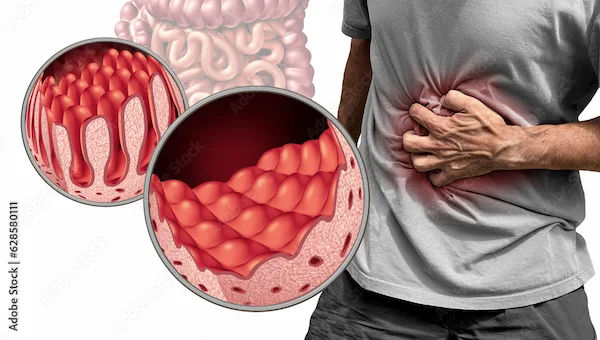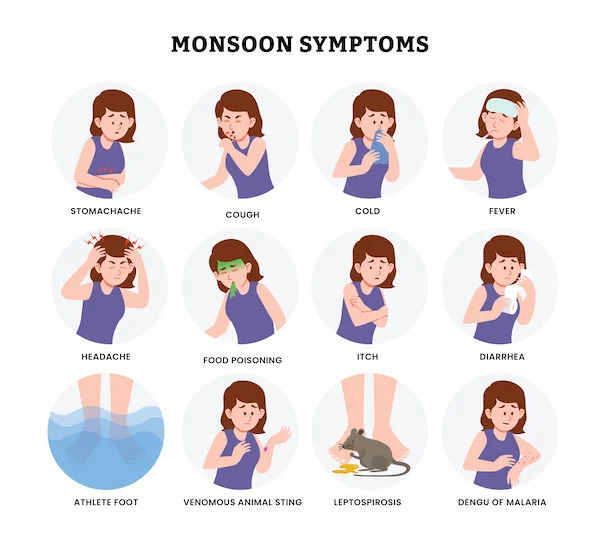Pneumococcal Vaccine Guide Types, Benefits, and Side Effects
Clear guide to pneumococcal vaccine types, schedules, benefits, side effects, and pneumonia prevention for kids and adults. Trusted, up-to-date advice.

Written by Dr. J T Hema Pratima
Reviewed by Dr. Dhankecha Mayank Dineshbhai MBBS
Last updated on 13th Jan, 2026

Introduction- Why This Vaccine Matters for Pneumonia Prevention
Pneumonia can be a serious illness at any age, but certain groups—such as young children, older adults, and people with long-term health conditions—are particularly vulnerable to severe infection and its complications. The pneumococcal vaccine is one of the most effective ways to prevent pneumonia and other infections caused by Streptococcus pneumoniae, a bacterium that can also lead to meningitis and bloodstream infections (bacteraemia).
If you are seeking clear, evidence-based guidance on pneumonia prevention, this resource outlines the different pneumococcal vaccines available, who should receive them, how they are administered, possible side effects, and how to stay on schedule according to up-to-date recommendations from trusted health authorities.Consult a Top General Practitioner for Personalised Advice
What Is Pneumococcal Disease?
Overview of pneumococcal disease is:
Pneumococcal disease is caused by Streptococcus pneumoniae (pneumococcus), a bacterium with many different strains known as serotypes. These bacteria can infect various parts of the body and cause a range of illnesses.
Common Infections
- Pneumonia: Infection of the lungs that may cause cough, fever, chest pain, and breathing difficulty.
- Ear infections (otitis media) and sinusitis are especially common in children.
- Bacteraemia (bloodstream infection): A serious condition that may lead to sepsis.
- Meningitis: Infection of the membranes surrounding the brain and spinal cord, which can be life-threatening.
Severe cases often require hospital treatment and may lead to long-term complications or death, particularly in children under five, adults over 65, and individuals with weakened immune systems.
Types of Pneumococcal Vaccines
There are two principal categories of pneumococcal vaccines: conjugate vaccines (PCV) and the polysaccharide vaccine (PPSV23). Each protects several pneumococcal serotypes.
Conjugate Vaccines (PCV)
Conjugate vaccines help the immune system develop strong and lasting protection. They are routinely used in infants and increasingly recommended as the primary vaccine for adults who have not yet received a pneumococcal conjugate vaccine.
- PCV15: Protects against 15 serotypes; approved for both children and adults.
- PCV20: Protects against 20 serotypes; approved for children and adults.
- PCV21: Protects against 21 serotypes; currently approved for adults only.
Polysaccharide Vaccine (PPSV23)
- PPSV23: Covers 23 serotypes and is approved for adults and certain children at higher risk of pneumococcal disease.
- It is often given after a conjugate vaccine (for example, PCV15) in individuals with particular risk factors or medical conditions to broaden protection against additional serotypes.
Who Should Receive the Pneumococcal Vaccine?
Vaccination recommendations vary by age, health condition, and previous vaccination history. Your clinician will help tailor the most appropriate schedule.
Children (Routine Schedule)
- Healthy children under five years of age: Should receive a four-dose series of a pneumococcal conjugate vaccine (either PCV15 or PCV20) at 2, 4, 6, and 12–15 months.
- Catch-up vaccination: Children who start late or miss doses can still be protected. The number of doses depends on their age at vaccination and previous doses received.
Children and Teenagers with Certain Medical Conditions
Some health problems raise the risk of serious pneumococcal disease, such as:
- Sickle cell disease
- HIV infection
- Cochlear implants
- Cerebrospinal fluid (CSF) leaks
- Chronic heart, lung, liver, or kidney disease
- Immune-weakening conditions (including those receiving chemotherapy)
- Lack of a functioning spleen (anatomical or functional asplenia)
Vaccination guidance for these children and teenagers:
- If PCV20 is used to complete their series, PPSV23 is usually not required.
- If PCV15 (or the older PCV13) is used, clinicians may recommend PPSV23 at or after age two, with timing based on the child’s health condition and vaccination record.
Adults Aged 65 and Over (No Prior PCV)
Older adults face a higher risk of severe pneumonia and related complications.
If you have never received a pneumococcal conjugate vaccine, you generally have two main options:
- One dose of PCV20 or PCV21, or
- One dose of PCV15, followed by one dose of PPSV23.
When PCV15 is given, PPSV23 is usually administered at least one year later. For people with weakened immune systems, the interval may be shortened to eight weeks. If PCV20 or PCV21 is chosen, no PPSV23 is needed in most cases.
Adults Aged 19–64 with Risk Conditions (No Prior PCV)
Adults under 65 with certain medical conditions or lifestyle risks should also be vaccinated.
Higher-risk conditions include:
- Chronic heart, lung (including COPD and asthma), liver, or kidney disease
- Diabetes
- Alcohol misuse or smoking
- Weakened immunity due to cancer treatment, organ transplant, advanced kidney disease, or HIV
- Absence or dysfunction of the spleen
- Cochlear implants or CSF leaks
Recommended options:
- One dose of PCV20 or PCV21, or
- One dose of PCV15, followed by PPSV23, according to individual risk and vaccination history.
Adults Who Previously Received Pneumococcal Vaccines
- If you previously received PPSV23 only, you may be advised to receive a conjugate vaccine (PCV15, PCV20, or PCV21). The interval is typically at least one year after PPSV23.
- If you previously received PCV13, you might still benefit from PPSV23 or a newer conjugate vaccine, depending on your current age and health.
- If you have already received both a conjugate vaccine and PPSV23 at or after age 65, further vaccination is often unnecessary—your clinician will review your record.
Benefits of the Pneumococcal Vaccine
The pneumococcal vaccine is a vital component of pneumonia prevention and offers protection at both the individual and community levels. Benefits include:
What the Vaccine Can Do
- Reduce the risk of pneumococcal pneumonia.
- Prevent invasive pneumococcal disease, including bacteraemia and meningitis.
- Lower hospitalisation rates and severe complications.
- Protect vulnerable groups—babies, older adults, and those with chronic conditions.
- Support community immunity: When more people are vaccinated, fewer bacteria circulate in the population.
What the Vaccine Cannot Do
- It does not prevent all forms of pneumonia, since other bacteria and viruses can cause lung infections.
- It does not treat existing infections; if you are ill, seek medical attention promptly.
Safety and Side Effects: What to Expect
Pneumococcal vaccines have an excellent safety record. Most side effects are mild, temporary, and resolve within a day or two.
Common, Mild Reactions
- Soreness, redness, or swelling at the injection site
- Mild fatigue, headache, or muscle aches
- Low-grade fever or chills
- In infants and toddlers: irritability, drowsiness, or reduced appetite
Less Common Reactions
- Temporary high fever
- Larger area of redness or swelling on the arm, which subsides naturally
Rare but Serious Reactions
- Severe allergic reaction (anaphylaxis) to a previous dose or a vaccine component (such as diphtheria toxoid in conjugate vaccines). Seek emergency help for breathing difficulty, facial swelling, or hives.
- Fainting, which may occur in adolescents or young adults. Sitting or lying down for 15 minutes after vaccination helps prevent falls.
Who Should Wait or Seek Advice Before Vaccination?
- People who have had a life-threatening allergic reaction to a pneumococcal vaccine or diphtheria toxoid should not receive that vaccine again.
- Those who are moderately or severely ill should postpone vaccination until recovery.
- Pregnancy: Pneumococcal vaccines are not live and are generally considered safe if needed for medical reasons; however, they are not routinely recommended during pregnancy unless advised by a clinician.
Can Pneumococcal Vaccines Be Given with Other Vaccines?
Yes. Pneumococcal vaccines can be administered at the same visit as other recommended vaccines, such as the influenza (flu) or COVID-19 vaccine. Different injection sites are used to avoid irritation.
Practical Scheduling Tips
Practical scheduling tips are:
- Keep your vaccination record card (or a photo on your phone) for reference.
- Inform your clinician of all previous pneumococcal vaccines and their dates.
- If you receive PCV15, note when PPSV23 will be due—typically one year later (or after eight weeks if you are immunocompromised).
- If you receive PCV20 or PCV21, no PPSV23 is usually needed, simplifying your vaccination schedule.
Quick Comparison at a Glance
How Pneumococcal Vaccination Fits into Broader Pneumonia Prevention?
Vaccination is one essential part of reducing pneumonia risk. You can enhance your protection by combining it with other healthy habits and preventive care.
Additional Preventive Measures
- Annual flu vaccination: Influenza infections can lead to secondary bacterial pneumonia.
- Stay up to date on COVID-19 and other recommended vaccines.
- Avoid smoking and seek support to quit if needed, as smoking damages lung defences.
- Practise good hygiene: Wash your hands regularly, cover your mouth when coughing or sneezing, and dispose of tissues properly.
- Manage chronic conditions such as asthma, COPD, diabetes, or heart disease to reduce vulnerability to respiratory infections.
Conclusion
Pneumococcal vaccination is a cornerstone of pneumonia prevention and a vital public-health tool that saves lives every year. By reducing the risk of serious respiratory and bloodstream infections, it protects individuals, families, and communities. Staying informed about the available vaccine options, understanding your personal risk factors, and following recommended schedules all contribute to long-term respiratory health. Whether you are a parent protecting a child, an adult managing a chronic condition, or simply prioritising your wellbeing, timely vaccination is one of the most effective defences against pneumococcal disease.Consult a Top General Practitioner for Personalised Advice
Consult a Top General Practitioner for Personalised Advice

Dr. Mainak Baksi
General Practitioner
13 Years • MBBS , MD (MPH)
Howrah
Mainak Baksi Clinic, Howrah
(50+ Patients)

Dr. Rajib Ghose
General Physician/ Internal Medicine Specialist
25 Years • MBBS
East Midnapore
VIVEKANANDA SEBA SADAN, East Midnapore

Dr. Suvadeep Sen
Critical Care Specialist
12 Years • MBBS, MD, FNB (CRITICAL CARE MEDICINE), EDIC
Mumbai
Apollo Hospitals CBD Belapur, Mumbai

Dr. Nupur Tandon
General Physician/ Internal Medicine Specialist
16 Years • MBBS, PG DIPLOMA IN Diabetes Management, Specialist in diabetes and thyroid disorders (CCEBDM)
Bengaluru
Apollo Clinic, Sarjapur Road, Bengaluru
(25+ Patients)

Dr J Kushal
General Physician
10 Years • MBBS
New Delhi
Apollo One Pusa Road, New Delhi
Consult a Top General Practitioner for Personalised Advice

Dr. Mainak Baksi
General Practitioner
13 Years • MBBS , MD (MPH)
Howrah
Mainak Baksi Clinic, Howrah
(50+ Patients)

Dr. Rajib Ghose
General Physician/ Internal Medicine Specialist
25 Years • MBBS
East Midnapore
VIVEKANANDA SEBA SADAN, East Midnapore

Dr. Suvadeep Sen
Critical Care Specialist
12 Years • MBBS, MD, FNB (CRITICAL CARE MEDICINE), EDIC
Mumbai
Apollo Hospitals CBD Belapur, Mumbai

Dr. Nupur Tandon
General Physician/ Internal Medicine Specialist
16 Years • MBBS, PG DIPLOMA IN Diabetes Management, Specialist in diabetes and thyroid disorders (CCEBDM)
Bengaluru
Apollo Clinic, Sarjapur Road, Bengaluru
(25+ Patients)

Dr J Kushal
General Physician
10 Years • MBBS
New Delhi
Apollo One Pusa Road, New Delhi
More articles from General Medical Consultation
Frequently Asked Questions
1) Does Receiving PCV20 or PCV21 Mean I Still Need PPSV23?
In most cases, no. A single dose of PCV20 or PCV21 is considered sufficient for adults who have not previously received a pneumococcal conjugate vaccine. Your clinician will confirm based on your personal medical history.
2) I Received PCV13 Years Ago. What Should I Do Now?
It depends on your age, health status, and whether you have received PPSV23. Some people are already fully protected, while others may benefit from an additional or newer conjugate vaccine. Always bring your vaccination record for professional advice.
3) Can I Get the Pneumococcal Vaccine Together with Flu or COVID-19 Vaccines?
Yes. These can be administered during the same appointment, using different injection sites. This makes it easier to stay protected without multiple visits.
4) Does the Pneumococcal Vaccine Prevent All Pneumonia?
No. It protects against pneumonia caused by Streptococcus pneumoniae, but not from viral or other bacterial causes. Nonetheless, it substantially reduces your risk of pneumococcal pneumonia and life-threatening complications.
5) What Side Effects Should Make Me Call a Doctor?
Contact your clinician if you experience:
Worsening redness or swelling at the injection site after 48 hours
Persistent high fever
Symptoms of a severe allergic reaction, such as difficulty breathing, hives, or facial swelling
For emergencies, call your local emergency number immediately.




